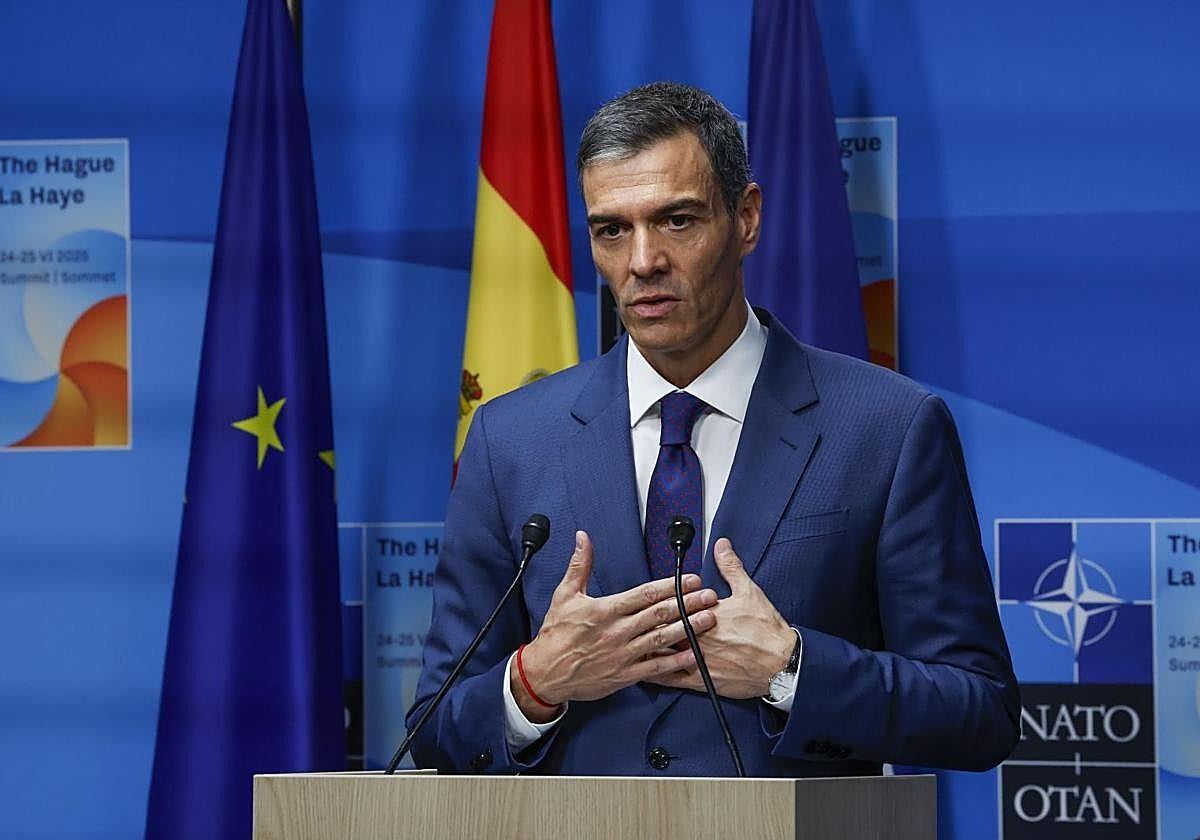Is that a promise?
There's something slightly redundant about Spain - or any other Nato ally - committing to or rejecting a spending plan that spans a decade and at least two changes of government
Mark Nayler
Friday, 27 June 2025, 11:59
As every Nato ally must have expected at the organisation's annual summit in The Hague this week, Spain refused to fall in line. While all other members agreed, in principle, to increase their defence spending to 5% of GDP by 2035, Pedro Sánchez claimed that his 10.5-billion-euro investment to take Madrid's expenditure to 2% for the first time ever would be sufficient to meet Nato's capability targets.
Conveniently for the Socialist leader, these are kept secret from the public, so no-one outside the military alliance can judge whether that's a realistic pledge or not. But Donald Trump doesn't think so, and immediately threatened tougher trade deals with Spain in retaliation.
Why lash out so quickly? There's something slightly redundant about Spain - or any other Nato ally - committing to or rejecting a spending plan that spans a decade and at least two changes of government. Even if Sánchez makes it to the next general election in 2027, there would be nothing to stop a government comprised of the PP and Vox from upping defence spending to 5% of GDP (provided it had a parliamentary majority). The same goes for the current leaders of all other Nato allies, whose backing of the new goal is no guarantee that successive governments over the next decade will honour their pledge.
One word was changed in the draft statement of this week's Nato agreements, supposedly to accommodate Spain's recalcitrance. Instead of stating that "we" - i.e. all Nato members - commit to spending 5% of their GDPs on defence, it now refers to "the allies". Now, any member that hasn't hiked its defence budget by 2035 can simply claim they weren't included in the scope of that vague common noun.
There is also the possibility that Sánchez might change his mind about defence spending - again. The stance he adopted at this week's summit doesn't align with his calls for an EU army, or the huge increase in defence investment that he announced in April, described by a shocked Sumar as "exorbitant". It remains unclear how he will find that extra cash, or how he would fund Spain's contribution to a European fighting force, without taking money from the welfare budget or increasing taxes.
Changes of government and political expediency within Nato countries aren't the only factors that will affect the feasibility of higher defence spending over the next decade. Geopolitical factors, such as the potency of the Russian threat, the situation in the Middle East and who's living in the White House, will also be important. That's yet another reason why the pledges made at Wednesday's summit should be taken very lightly - and why the alliance's lone rebel isn't as dangerous as Trump seems to think.
